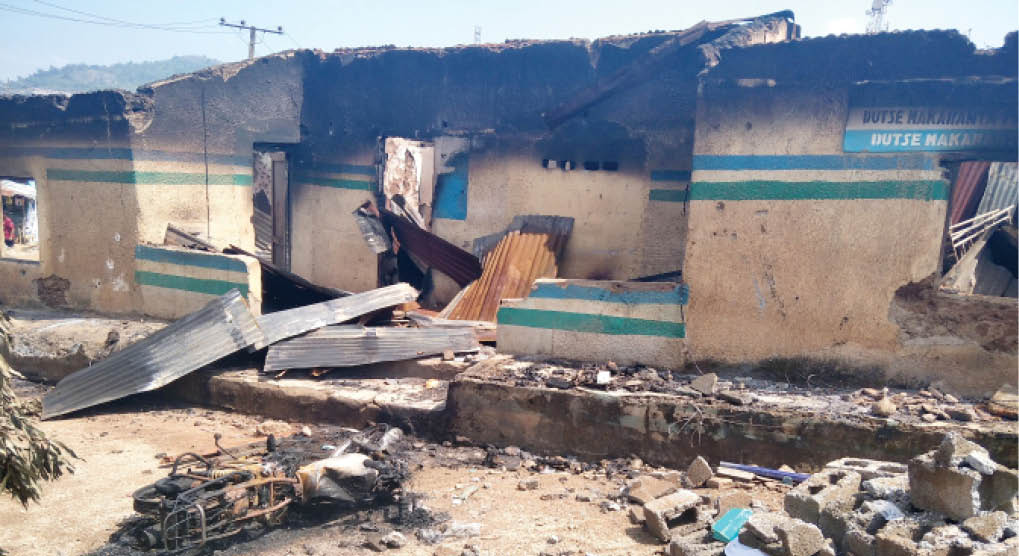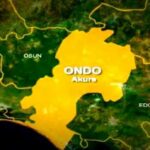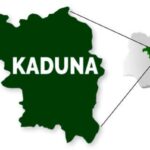It was doubly tragic that the EndSARS protests spearheaded by youths that began in this country on a peaceful note and quickly extracted concessions from the government later degenerated into shootings, ugly riots, arson, looting, cold blooded murder, attack on media stations, storming of prison facilities, releasing of prisoners, clashes between protesters and pro-government groups and they later assumed inter-communal dimensions in some parts of the country.
A week ago, in our editorial of last Sunday, October 18, 2020 titled ‘End the EndSARS protests,’ we urged the organisers to call off the protests first because government conceded to the initial demands and also because of the high possibility that the protests could be hijacked by hoodlums. This was exactly what happened. We appreciate that given the government’s record of making and then breaking promises, there was reason to be skeptical that it would live up to its promise to take decisive steps to end brutality by special police units.
- #EndSARS: 11 Feared Dead As Hoodlums Go On Rampage
- #ENDSARS: Gov. Umahi Suggests National Conference
Still, having exerted maximum pressure on the government, extracted an apology from the Vice President for the inability to act fast on the report of the presidential committee on police reforms, having concentrated the attention of the National Assembly and having won broad international support for a just cause, we blame the protest organisers for continuing with the protests and in fact widening the demands on a daily basis. As President Buhari said in his broadcast [at last] on Thursday, the protesters mistook the concessions as a sign of weakness.
Other responsible voices such as the National Peace Committee led by General Abdulsalami Abubakar also called for an end to the protests in order to avert the possibility of violence and also give government time to implement the promised reforms. In line with the National Economic Council’s [NEC] decisions, many state governors across the country had set up judicial commissions of inquiry into police brutality. Funds were also being set up in some states to compensate victims of police brutality. Yet, social media agitators, many of them based abroad, egged the demonstrators on and urged them to sustain the protests. They also kept adding demands ranging from reducing oil prices, lowering electricity tariffs, cutting salaries of legislators and ending corruption in the society.
Desirable though these demands are, it is unrealistic to expect to solve them within a week of street protests. Socio-economic and political problems have piled up in Nigeria over several decades. They cannot be solved overnight but it is good enough, we believe, if government is made to show willingness to move towards finding solutions to them. The danger of uncontrolled street protests was not only the hardship it visited on hard-pressed citizens who were just picking up the pieces of their lives after the pandemic-imposed lockdowns. It has now led to the burning and destruction of priceless public and private assets including media houses, courts, police stations and a venerable Oba’s palace. It might also set back efforts to stem the COVID-19 pandemic, given the way people congregated without social distancing or masks.
Still, we urge President Buhari and the Federal Government not to be discouraged or dispirited but to learn the right lessons from this sad national episode. One important step is to set up an impartial inquiry to find out exactly what happened at Lekki Toll Plaza last Tuesday night. It was social media-fueled allegations of a massacre of peaceful protesters by soldiers that inflamed the situation and gave hoodlums the pretext to seize the initiative. Yet, much doubt has now been cast on the events and it is doubtful if a massacre took place at Lekki at all. An impartial inquiry into the events will also help this country’s standing with the international community, which may have rushed to judgement.
The biggest lesson of all this is that there must be a quick change for the better in the conduct of public officials at all levels and their sense of priorities. No more should democratic and other public institutions from the Presidency, National Assembly, state governors down to local government councils should carry on with wanton disregard for the welfare and concerns of citizens and pursue policies and projects with selfish motives of self-aggrandisement, election rigging and vote buying.

 Join Daily Trust WhatsApp Community For Quick Access To News and Happenings Around You.
Join Daily Trust WhatsApp Community For Quick Access To News and Happenings Around You.


